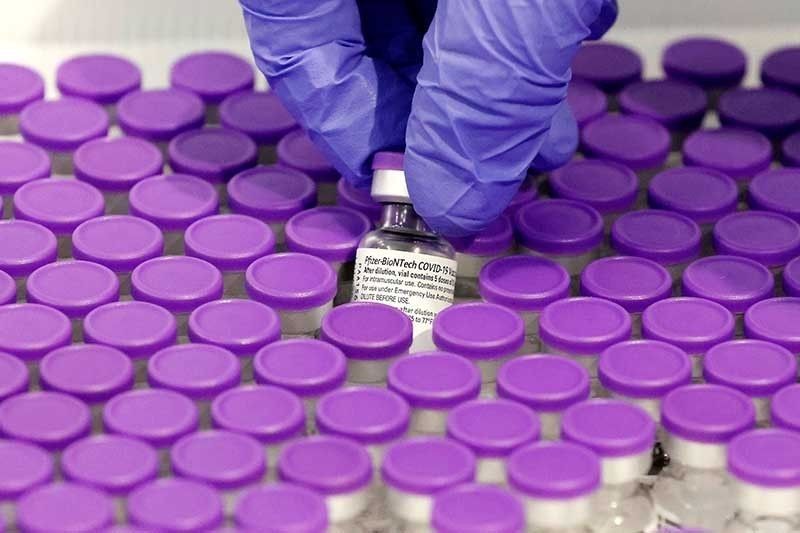Galvez: Deployment of Pfizer, Moderna jabs may only be in central hubs due storage issues

MANILA, Philippines — Coronavirus vaccines requiring excessively cold temperatures can be only deployed in major urban centers in the Philippines due to the lack of facilities, the country’s vaccine czar said Monday.
Only Metro Manila, Cebu City and Davao City have facilities with sub-zero temperatures need to preserve the potency of the vaccines manufactured by American firms Pfizer and Moderna, said Sec. Carlito Galvez, a former military general in charge of the country’s strategy to combat the COVID-19 crisis.
Both COVID-19 jabs use messenger RNA to trigger the immune system to produce protective antibodies. Hence, the biological structures of both vaccines could fall apart if they are stored in room temperature.
To stay viable, the Pfizer vaccine, which has an efficacy rate of 95%, should be stored at–70°C
The Moderna vaccine does not need subarctic temperature like the Pfizer jab does, but it requires to be stored at–20°C. It has an efficacy rate of 94.1% in preventing COVID-19.
“For us to have easier management of logistics, [those with –20°C and –70°C requirement] will be deployed only in central hubs,” Galvez said during the Senate committee of whole hearing on the government’s inoculation plan.
Presidential spokesperson Harry Roque, in a separate briefing, also said that the COVID-19 vaccine developed by Pfizer will be available only to “major cities.”
Meanwhile, vaccines which can be stored at 2°C to 8°C—the standard temperature that is within the existing cold chain system in the Philippines—will be deployed in suburban and rural areas.
“But we will devise ways and means,” Galvez said.
The Philippines aims to vaccinate 50 to 70 million Filipinos against COVID-19 in 2021 alone, but it depends on the global supply, which had been mostly procured by wealthy nations.
So far, the national government has signed deals for 30 million doses of Covovax vaccine developed by US-based Novavax and Serum Institute of India and 25 million doses of the jabs developed by China’s Sinovac.
Last year, it signed a deal with British-Swedish drugmaker AstraZeneca for 2.6 million doses of its COVID-19 vaccine, which was made possible through the donations of some 30 private companies.
The vaccines of Novavax, Sinovac and AstraZeneca do not require ultra cold storage.
The country's Food and Drug Administration has not yet approved any vaccine for emergency use, which is required before it can be rolled out for mass vaccination. Pfizer, AstraZeneca and Russia's Gamaleya have applied for emergency use authorization.
With nearly 490,000 COVID-19 infections, the Philippines has the second-worst coronavirus outbreak in Southeast Asia following Indonesia. — Gaea Katreena Cabico
The City Health Office of Lipa City reported on Sunday that 6,596 people have already received their jabs of Sinovac and AstraZeneca COVID-19 vaccines since the inoculation started two months ago.
The number represents 10% of the total 65,377 persons who registered to be scheduled for COVID vaccination.
Lipa City has a total population of 389,836 but not everyone registered for the vaccination. The city government also said 149,881 residents are aged 18 and below and currently “not qualified” for vaccination. — The Filipino Connection/Marlon Luistro
British-Swedish pharmaceutical AstraZeneca has applied for emergency use authorization of its COVID-19 vaccine in the Philippines.
Philippine Food and Drug Administration Director General Eric Domingo confirms this in an interview with CNN Philippines.
AstraZeneca, along with its partner Oxford University in England, has so far made 50 million doses of its vaccine. In November, the British laboratory announced that its vaccine was on average 70% effective.
The Armed Forces of the Philippines terminates its investigation into the unregulated Sinopharm vaccination of President Rodrigo Duterte's security detail following the chief executive's order not to cooperate with the probe.
- Latest
- Trending































